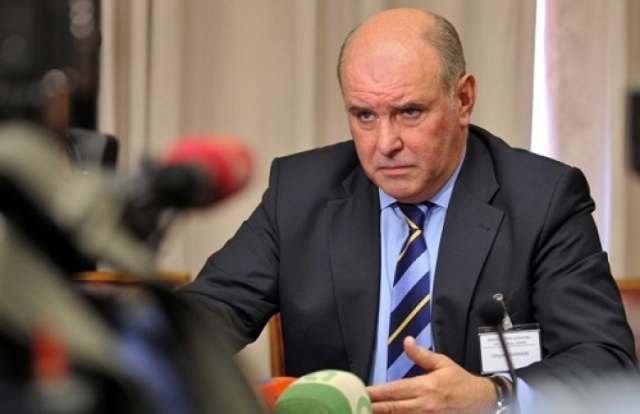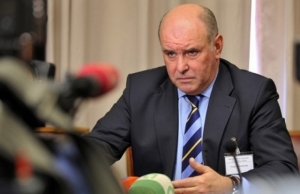Karasin Says Anti-Russian Bias Permeates Georgia, Visa Regime to Remain
TBILISI – Russia’s Deputy Foreign Minister Grigory Karasin claimed in a Wednesday interview with Georgian TV that the country’s rampant anti-Russian rhetoric is a major threat to bi-lateral relations between the two former Soviet republics and any talk of a lifting of Moscow’s current visa regime is out of the question.
“The main threats in Georgia are the upcoming parliamentary elections and the rampant anti-Russian rhetoric that we hear in Tbilisi, at international platforms and from public figures. That these sentiments are felt by Georgian officials, politicians, ministers, even the president, are a major hindrance in our relations,” Karasin said.
Karasin, a career diplomat and Kremlin insider who once served as Russia’s ambassador to the United Kingdom, criticized Georgia’s Defense Minister Tina Khidasheli for what he claimed were her inflammatory remarks regarding Moscow’s bellicose foreign policy agenda in the post-Soviet space.
“Every politician wants to show what a great patriot they are. Georgia’s foreign minister is no different. She called on the whole world to stand up to some ridiculous imagined Russian threat. In any normal society a statement like this is never forgiven. I’ll be honest when I say we try to restrain ourselves, but our patience has its limits," said Karasin.
Adding to his hardline rhetoric, Karasin said Russia would not consider cancelling the current visa regime for Georgian passport holders due to security concerns and Tbilisi’s drive towards Euro-Atlantic and NATO integration.
Russia still maintains massive combat-ready forces in Georgia’s breakaway regions Abkhazia and South Ossetia, an area that comprised more than 20 percent of Georgia’s total territory. Despite the two regions’ claims that they act independently of outside influence, Moscow fully subsidizes the rebel governments and provides local citizens with Russian passports, telecommunications servers and pensions.
Russia has deployed thousands of crack paratroopers and mechanized rifle brigades to the two regions, under the guise of international peacekeepers.
Media Onslaught
Russia has, in recent years, dedicated significant media resources – including outlets of the Kremlin-controlled propaganda networks RT, Sputnik and LifeNews – to both Georgia and Armenia in an attempt to shore up both political and public support for Russian President Vladimir Putin’s agenda in the region.
Karasin freely admitted that the Kremlin closely monitors developments in the Caucasus region, including Georgia’s drive towards Western integration. A move Putin considers a strategic red line.
In response to Karasin, Georgian Deputy Prime Minister David Zalkaliani sharply criticized his counterpart’s statements saying Georgia would enter into a dialogue on a normalization of relations only after Russia fully returns Abkhazia and South Ossetia to Tbilisi’s control.
Georgian government forces have fought three wars against Russia and their proxy separatist allies in Abkhazia and South Ossetia between 1991-2008. The wars left tens of thousands dead and led to the ethnic cleansing of a quarter of a million ethnic Georgians.
Abkhazia and South Ossetia were later recognized as independent states by Moscow following the 2008 war.
International law and the United Nations continue to state that the regions remain parts of Georgia.












